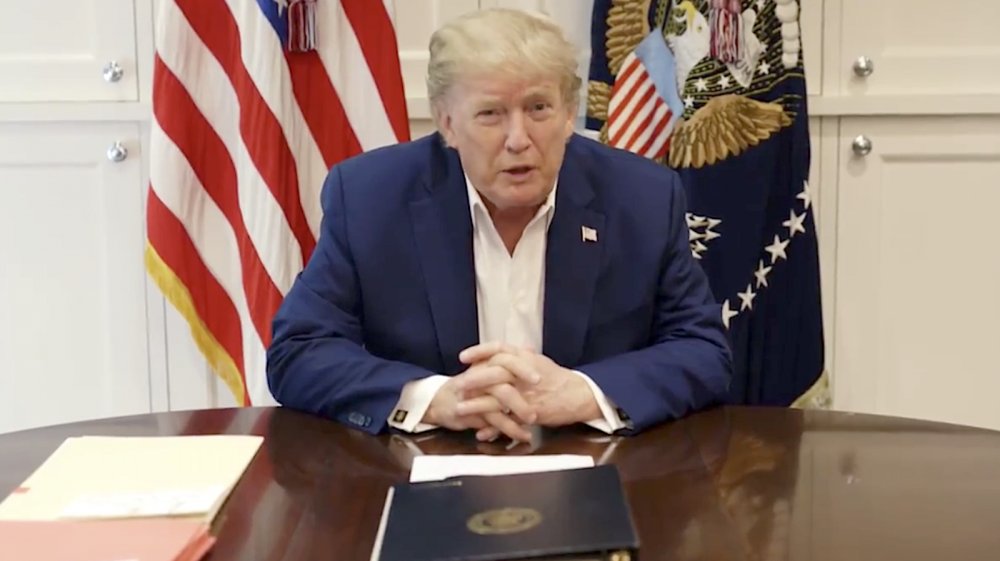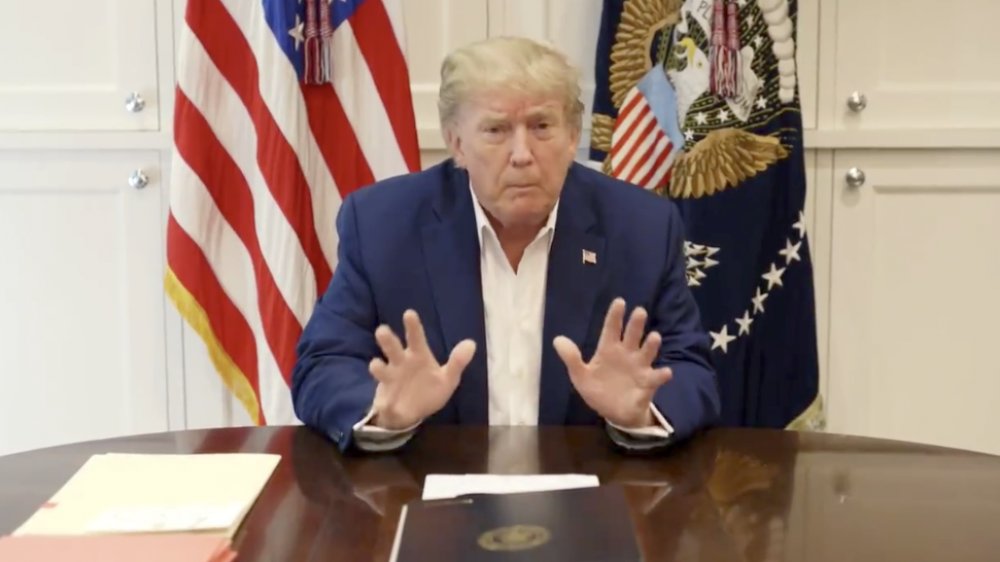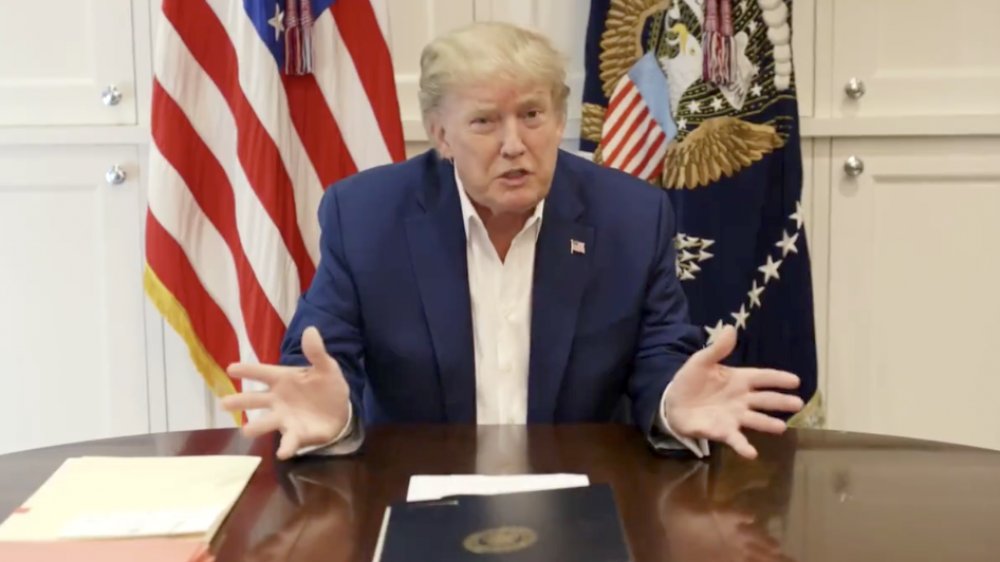Body Language Experts Make Bold Claims About Trump's First Message From Hospital
Donald Trump recently delivered a statement from the Walter Reed National Military Medical Center in Washington, D.C., where he was admitted Friday after making his Covid-19 diagnosis public earlier that day (via The Independent). Americans watched to see how the commander-in-chief was faring after the startling announcement that both he and First Lady Melania Trump, had fallen ill. To better understand what was said and left unsaid during the four-minute clip, The List turned to two top experts: human behavior and body language expert Mark Bowden, also a panelist on The Behavior Panel; and body language expert and psychologist Dr. Renée Carr, who's also a political and corporate advisor.
First, Bowden noted that Trump's physical appearance appeared less than robust, detecting, "a clear loss of weight in his face and loss of color to his face." He also pointed to a more subdued demeanor being exhibited by the president with "more downward intonation to his voice. [He's] not so upbeat, aggressive, or optimistic. His gestures are consistent in his hands to his baseline, but his head is tucked down towards his shoulders in a 'turtle' gesture which often denotes the need for protection." Bowden also pointed out that Trump, "is not wearing a tie, which may denote his need for as little constriction as possible around his airways."
Experts say Trump attempted to convey strength and instill confidence in message from hospital
Carr zeroed in on Trump's apparent efforts to reinforce the idea that he is still in control and in charge. "President Trump, when relaxed or in business mode, keeps his hands slightly clasped, pointed upward with fingertips from each hand touching, or with his arms folded and hands holding his forearms," she said. "Here we see President Trump tightly interlocking his fingers. Most often when he holds his hands in this way, it is when he is giving a formal speech or formal update to the country. Because President Trump is using this gesture, it reveals that he was giving his health update as a formal responsibility of a president in an attempt to assure the general public ... that his health has not been severely compromised." Bowden added that "the setup around him — flags and documents — [is meant] to have us feel that he is running the country and working."
While clearly the president wants to show fortitude, Bowden suggested he may be struggling to stick to his relentless positivity about himself. Per Bowden, when Trump says, "'I am starting to feel ... good ...' [there is an] upward inflection on good, which suggests that this is a question for him. Not fully decided yet.'"
Carr pointed out that "more than the goal to alleviate the general public of worry, Trump sought to speak to his primary voting base. He quickly emphasized returning to the campaign trail." She continued, "By referring to the coronavirus as 'the coronavirus or whatever you want to call it,' Trump is simultaneously acknowledging the realities of his coronavirus diagnosis while also maintaining his previous stance that the coronavirus can be easily overcome."
Trump awkwardly acknowledged 'condolences' from world leaders, per experts
When referring to the expressions of support coming from leaders around the world, Bowden noted that Trump used an unusual term. Per Bowden, Trump says, "'Leaders of the world' — clasped hands raise in optimism — 'for their ... errrr ...' hand drop hard, creating a knock on the desk, 'for their condolences.' This is what you offer when someone dies. There is a suggestion here that he or other leaders or both felt he was very ill."
Carr added an additional view on Trump's awkward word choice: "President Trump struggled to think of a word to describe the expressions of concern he received from other world leaders. He likely is very much aware that their expressions were not sincere, but politically motivated." But she continued, saying, "it was personally important for President Trump to publicize that other world leaders expressed concern for his welfare — with his statement being an act meant to persuade Americans to believe that he is respected around the globe; and a reminder that he is the leader of 'the most powerful country in the world.'"
Carr also was struck by Trump's overt desire to be respected at home. "When expressing gratitude for the public's concern for his welfare, President Trump emphasized his gratefulness to the American people with body language that emphasized the word 'American.' His shoulders and chest moved forward as if making an exclamation mark with his body on the word 'American.' ... His greater gratitude for the support of the American people is likely sincere. It is very important for President Trump to be respected, not only around the world, but especially in America — and especially when he is campaigning for re-election."


